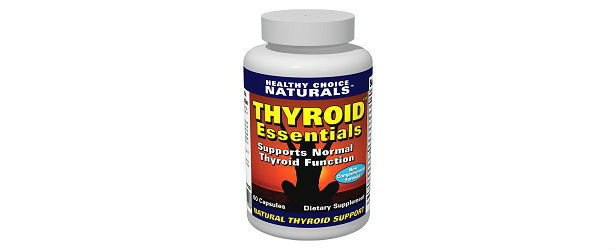
What Causes Thyroiditis?
When our thyroid gland is inflamed, it is referred to as thyroiditis. There are many kinds of thyroiditis and it is important to know about them, since each type has a specific treatment regime.
Hashimoto’s Thyroiditis
Chronic lymphocytic or autoimmune thyroiditis, also known as Hashimoto’s thyroiditis, is the most usual variety of thyroiditis. This thyroiditis was named after Hakaru Hashimoto, a Japanese doctor who first explained this condition in 1912.
In this condition, the enlarged thyroid gland is always present, though the enlargement can be either on both sides or on one side of the thyroid. Initially the thyroid cells fail to convert iodine into the thyroid hormones. Thus, they try to compensate for this by increasing the number of thyroid cells, thereby enlarging the gland.
Uptake of the radioactive iodine might be high, this is a quite paradoxical finding since the patient is actually hypothyroid. But the gland is still capable of absorbing the iodine, even though it cannot manufacture thyroid hormone anymore.
With the disease onset, initially TSH levels rise as the pituitary tries to stimulate the thyroid gland to produce more hormones. But the T4 level keep on falling, making the patient hypothyroid. These changes can either occur slowly over the span of years or it can happen in the matter of a couple of weeks.
 First step should be the replacement of thyroid hormones in the form of thyroid drugs. This will not only correct the hypothyroidism but also prevent further increase in the size of the gland.
First step should be the replacement of thyroid hormones in the form of thyroid drugs. This will not only correct the hypothyroidism but also prevent further increase in the size of the gland.- Research has shown that once the hormone replacing therapy has started, the gland will start shrinking.
- In ninety-five percent of the cases, antibodies are positive and they are an important marker for the identification of this disorder, instead of using invasive approaches like surgery or thyroid biopsy.
- The thyroid antibodies might be found in a person who has been cured or someone who is still on the hormone replacing therapy.
De Quervain’s Thyroiditis
This thyroiditis is also known as granulomatous or sub acute thyroiditis. Its incidence is less compared to the Hashimoto’s thyroiditis. In this condition, the gland enlarges abruptly and is tender on touch and very painful for the patient.
Initially, the thyroid releases increased amounts of the thyroid hormones, rendering the patient hyperthyroid. After some time, it exhausts and stops taking up any iodine, thus making the patient hypothyroid.
- Patient feels tired and sick and prefers to stay in the bed.
- ESR (erythrocyte sedimentation rate) is high; this is a marker for the inflammation.
- Thyroid antibodies are absent.

- Best treatment is bed rest, aspirin and steroid.
- Almost all patients recuperate and their normal thyroid functions return.
- Recurrences are not that common.
Silent Thyroiditis
This type of thyroiditis has the feature of both De Quervain’s and Hashimoto’s thyroiditis. There is no pain and biopsy is similar to the Hashimoto’s thyroiditis. On the other hand, the uptake of radioactive iodine is decreased and thyroid blood test is also high, just like the De Quervain’s thyroiditis.
This condition is more common in the post-partum females. It generally does not require any treatment. The best treatment is bed rest and beta blockers.
TOP 5
THYROIDProducts |
|||||
| Thyraid | ThyroMend | Thyrene | SupraHealth | Blue Spring | |
|---|---|---|---|---|---|
| 1 | 2 | 3 | 4 | 5 | |
| Price (1 bottle) Price (6 bottles)best value |
$49.95 $139.80 |
$38.95 $233.70 |
$39.99 $159.96 |
$59.97 $323.84 |
$35.99 $194.35 |
| Overall Rating | 99.50% | 85.70% | 76.60% | 68% | 60.20% |
| Performance* |





|





|





|





|





|
| Speed of Results* | Extremely Fast | Good | Average | Average | Slow |
| Quality of Ingredients | Premium | Good | Good | Average | Average |
| Customer Satisfaction Evaluation | 99.20% | 84% | 74% | 68% | 60% |
| Safety Evaluation | Safe for Use | Safe for Use | Safe for Use | Safe for Use | Safe for Use |
| Customer Service Rating |





|





|





|





|





|
| Reorder Rate | Highest | Good | Good | Average | Average |
| Return Policy | Risk Free | Risk Free | Handling & Restocking Fee | Risk Free | Risk Free |
| Success Rate | 99.20% | 85% | 69.20% | 67.50% | 60% |

 Subscribe Now
Subscribe Now











